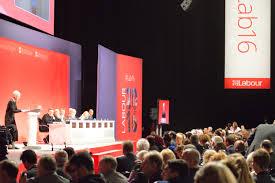Insights from the Labour Conference 2023

Introduction to the Labour Conference 2023
The Labour Conference, held annually, serves as a crucial platform for party members, activists, and leaders to discuss and shape party policy. This year’s conference was particularly significant as it took place amidst a backdrop of economic challenges, social issues, and upcoming elections. The engagement at the conference reflects the party’s strategic direction and its response to the evolving political landscape in the United Kingdom.
Main Highlights of the Conference
The Labour Conference 2023 took place in Liverpool, where over 12,000 party members gathered to deliberate on pressing issues. Key speeches were made by prominent figures including Labour leader Keir Starmer. The focus was heavily centred on policies aimed at addressing the cost-of-living crisis, calls for improved workers’ rights, and a sustainable green economy.
Starmer announced a bold initiative to raise the minimum wage to £12 per hour, emphasising Labour’s commitment to supporting working-class families. Furthermore, there was a strong call for reforming the healthcare system to improve access and efficiency, echoing public sentiments surrounding the NHS.
Another significant topic was climate change, with a proposal for an ambitious new green deal that aims to create thousands of jobs in renewable energy sectors. This plan aims to not only address environmental concerns but also stimulate economic growth by investing in future technologies.
Responses and Reactions
The announcements have been met with mixed reactions. Supporters of the Labour Party praised the progressive approach and the focus on social justice and the environment. Critics, however, argue that the proposed policies may not be feasible in the current economic climate. Trade unions expressed their support for enhanced workers’ rights, while some business groups reminded the party to consider implications on the economy.
Conclusion and Future Implications
The Labour Conference 2023 demonstrated a clear signal towards a more progressive Labour agenda, aiming to tackle immediate concerns while laying down a vision for the future. As the conference concluded, all eyes are on the upcoming elections and how these new policies will resonate with the electorate. The effectiveness of these announcements in attracting voter support will significantly shape the Labour Party’s prospects moving forward. Engaging the public will be crucial as the party seeks to present itself as a viable alternative to the current government, particularly in light of ongoing economic challenges.
